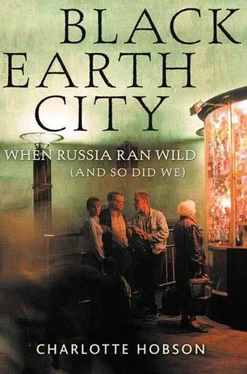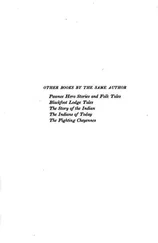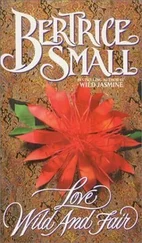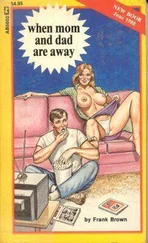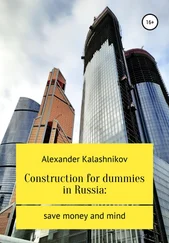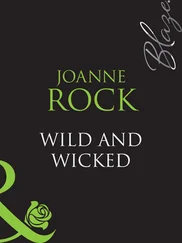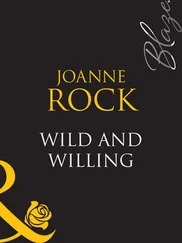“Why do you want to speak our language?” people were always asking, looking at us with ill-concealed pity.
“It’s a beautiful language.”
They were unconvinced. “Of course it’s a beautiful language. But books, music, you can read and listen to them back home in comfort. Why come here?”
“Well, it’s stimulating to live in another country—”
“What, our poverty? The chaos we’re in now?”
I always fell back on my one, incontrovertible reason. “My mother was Russian.”
“Ah,” they’d say, relaxing. “Now we understand. It’s in the blood. Emigrés never really settle. In that case, of course you speak Russian.”
A certainty that, as I struggled to make sense of Russian grammar, I found rather a comfort.
Our teachers were a disparate lot, with the particular exaggerations that teaching seems to encourage. V. P. Pavlov was meticulously dull, with a mouthful of blackened stumps that made it painful to watch him talk. He discussed etymology in Novoyaz, Soviet jargon: “The sociophilosophical aspect of this development leads us to the extrapolation of historical trajectories—” He was utterly unaware of this habit, like the girl in the fairy tale who spews forth toads and foul-smelling insects every time she opens her mouth.
A. S. Saltykov was tall, handsome, intelligent, and so overwhelmed by cynicism that every time he lifted his hand to scratch his head one could see him thinking, “What’s the point?” His lessons were fascinating, and yet I always had to force myself to go to them, knowing that the rest of the day would be shadowed by his despair. Yulia Antonovna, on the other hand, was romantic in a folksy, braids-and-sandals fashion. She gave a class called Musical Phonetics; for a couple of hours a week we’d gather around as she strummed on her guitar and taught us Russian folk songs. Everything with her was in the diminutive. “Let’s sing a dear little song,” she’d suggest. “A tiny song in a chordlet of fah .”
Rita Yurievna, a brisk, cerise-lipped matron with a sense of humor, was the teacher from whom I learned the most. Under her guidance we picked our way through the tangled forests of the Russian lexicon, as beautiful, as impenetrable, and as dark, in her eyes, as the Russian character itself. It has always seemed to me that grammar exercises are a revealing way to look at a culture. The French book I used featured Mme. Bertillon, an air hostess, who was on a diet. “ Mme. Bertillon a perdu du poids !” the narrator announced approvingly. The first Russian sentences I came across, on the other hand, were a mystery. “Is this a table?” asked a cheerful young student, pointing at something out of the picture. “ Nyet !” sang back another student. “It is a bridge!” which seemed a strange mistake to make.
Rita Yurievna’s examples were more elaborately surreal. We were taught to be precise as to whether we had crawled around the swamp just once or many times; whether we were in the habit of flying deep into strange territory or whether it had been merely a temporary aberration; and how to differentiate between a crowd of people running to their respective homes or converging on one’s own. Each case demanded a specific, prefixed verb.
“You must understand,” said Rita Yurievna, “that in Russian, verbs are not only about action. They are also about the experience. Think how different it feels if you walk down a street every morning of your life, and if you walk down it for the first and only time. It may be the same action, but it is another experience entirely.”
Lesson II: Exercises
a.Enter a restaurant or a café. You will be shown this piece of typewritten card:
MENYU
A LA KART
Bifshteks • Salat • Kofe
Krokety • Kartofel “fri” • Chai
Kotlety • Kartofelnoye “pyure” • Vodka (100 gr)
Select your meal.
b.Go into a Universalny Magazin. In which department will you find the following?
(i) trikotazh
(ii) bootsi
(iii) bustgalter
( h in English often becomes g in Russian)
c.Match these words up to their meanings:
baraban bell
kolokol violin
skreepka drum
Many Russian words are onomatopoeic.
d.A little more Russian vocabulary that you didn’t know you knew:
straus—ostrich
pasternak—parsnip
tolstoy—an archaic word for fat
Lesson III
I learned most of my Russian from Mitya, of course. Several days a week, Mitya fixed it so that his classes didn’t start until ten, two hours after his parents had left for work and taken his brother to school. Two hours in an empty apartment: Rita Yurievna didn’t stand a chance. On those days I stumbled out of bed and dressed in the kitchen so as not to wake the others. The streetlights were still lit; I slid through the snow and the shadowy light to the bus stop. I always glanced down Peace Prospect to check by the station clock that I was not early; I didn’t want to bump into Mitya’s mother on the stairs. By eight o’clock she would have left her younger son at school and set off for her engineering firm, never suspecting that some foreign girl, trembling with cold and excitement, was banging on her steel door.
Those snowy mornings I began to gain a sense of the language, its soft, sliding rhythms that seemed to follow a looping pattern of their own until you reached the noun at the end of the sentence. Mitya teased me with strings of participles.
“Hello, pink-cheeked, having-walked-through-the-cold-morning-air, still-sleepy-eyed girl,” he greeted me.
“Mitya—”
“Come in and taste the having-been-smelled-in-the-hallway coffee.”
Russian is malleable, and Russians love to manipulate it, to roll the words around their mouths, to distort them, to reinvent them. Colors, for example, can become verbs; verbs are transformed with prefixes and turned back into adjectives and nouns; neologisms are a part of everyday speech. This suppleness makes for a wonderfully suggestive language, a language of association and imagination. And somehow its soft-shoe shuffle, its twisted vowels that turn e into ye and o into a , and the network of agreements in each sentence that give the impression of internal rhymes, gives spoken Russian a particular sensuality.
“Learning Russian is like falling in love,” Rita Yurievna remarked on one occasion, looking knowing. “To fall in love: vlyubit’sya . You take the verb to love, lyubit ’, and add the prefix v, meaning in, into. Then make it reflexive, because it is happening to you, isn’t it? Not to anyone else. No one else could be feeling like this! Lovers always think they are unique. Isn’t it a beautiful word?”
Mitya and I drank coffee in his parents’ flat and tried to talk. We made precarious progress, for misunderstandings were common. The hostel obscenities I introduced randomly into the conversation were obviously a little surprising, but that was nothing compared to the surreal impressions I sometimes took away from Mitya’s conversation. On one occasion we went to an exhibition. Mitya glanced at each picture and said casually, “Yes, I painted that one. And that one. Yes, that one too.”
“What do you mean?” I asked.
“I painted them. It didn’t take long. I did it as a favor to Fyodorov.”
The exhibition was of Fyodorov’s work. For a moment, the thought that I was with a dangerous megalomaniac eclipsed most others. Then I realized: he had written the descriptions beneath the pictures, not painted them. The same verb, pisat ’, could be used to mean either.
Читать дальше
